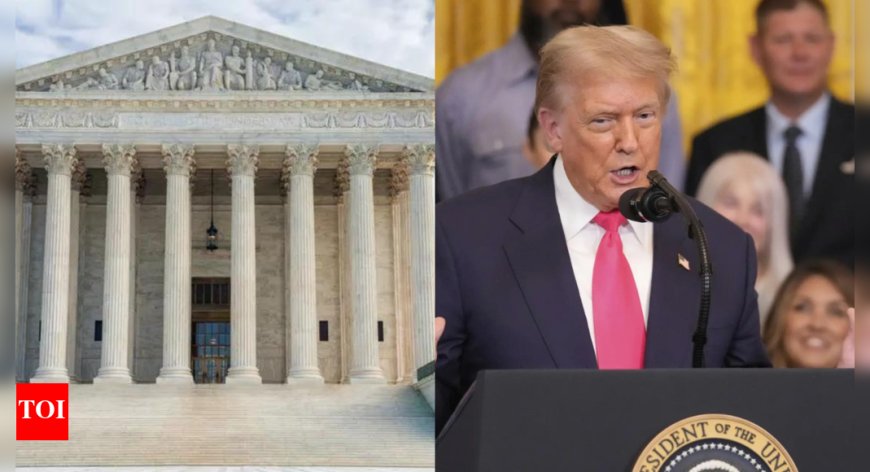US Supreme Court Limits Judges' Power to Block Executive Actions on Birthright Citizenship
The US Supreme Court ruled 6-3 to restrict federal judges from issuing nationwide injunctions, a move seen as a victory for President Trump's attempt to revoke birthright citizenship. While the ruling did not settle the constitutionality of the executive order, it marks a significant change in how challenges to federal policies can proceed.

The US Supreme Court, in a 6-3 ruling, limited the power of federal judges to issue nationwide injunctions, a victory for President Donald Trump. The case involved Trump's attempt to revoke birthright citizenship through an executive order. While the court did not rule on the order's constitutionality, it stated that nationwide injunctions may exceed the authority granted to federal courts. This decision changes how lawsuits against federal policies can proceed but does not resolve the implementation of Trump's policy change. Birthright citizenship, guaranteed by the 14th Amendment, has been a key aspect of US citizenship law. Trump's order challenges this by arguing that children born to those not under US jurisdiction should not be citizens. The administration's stance has faced opposition from federal judges, immigrant advocates, and civil rights groups. The Supreme Court's ruling limits broad injunctions but leaves room for further legal challenges to the birthright citizenship order. The fate of the policy remains uncertain pending future litigation.
What's Your Reaction?
 Like
0
Like
0
 Dislike
0
Dislike
0
 Love
0
Love
0
 Funny
0
Funny
0
 Angry
0
Angry
0
 Sad
0
Sad
0
 Wow
0
Wow
0




















































































































































